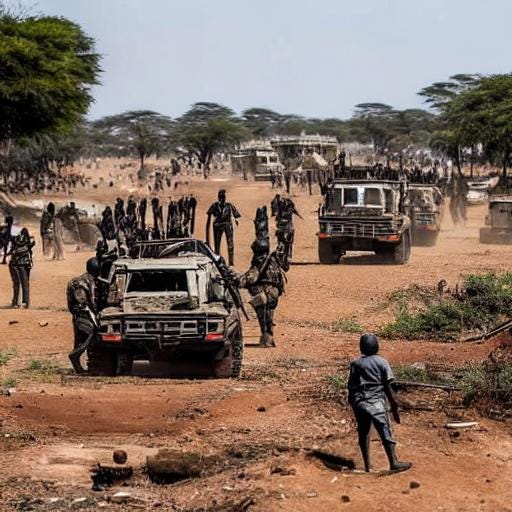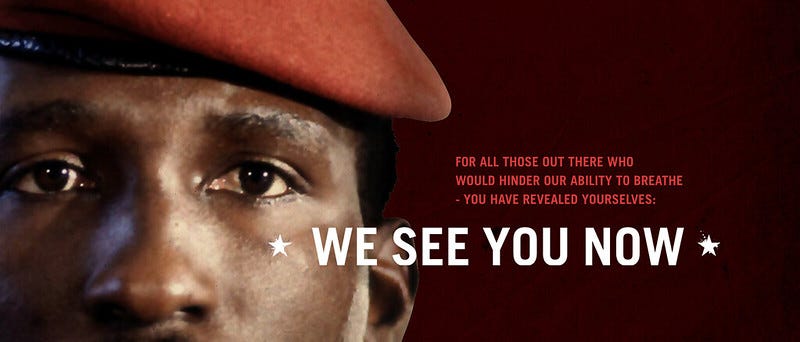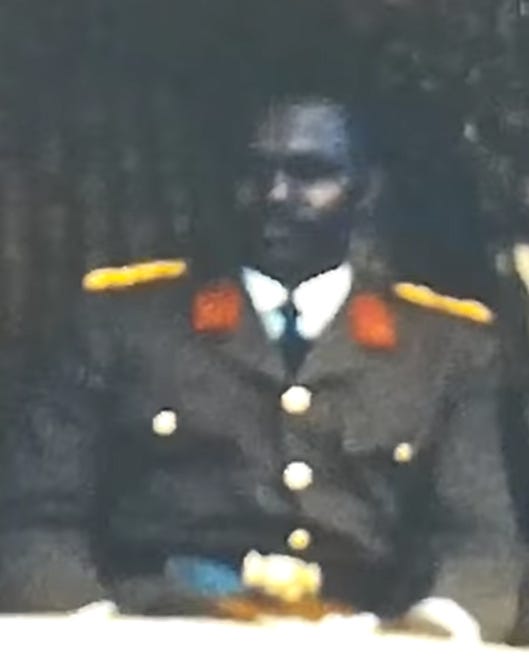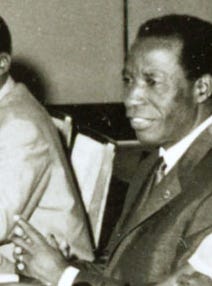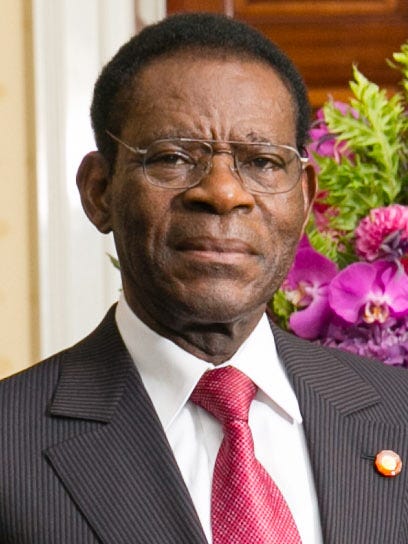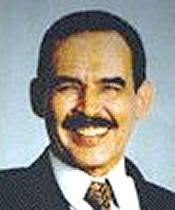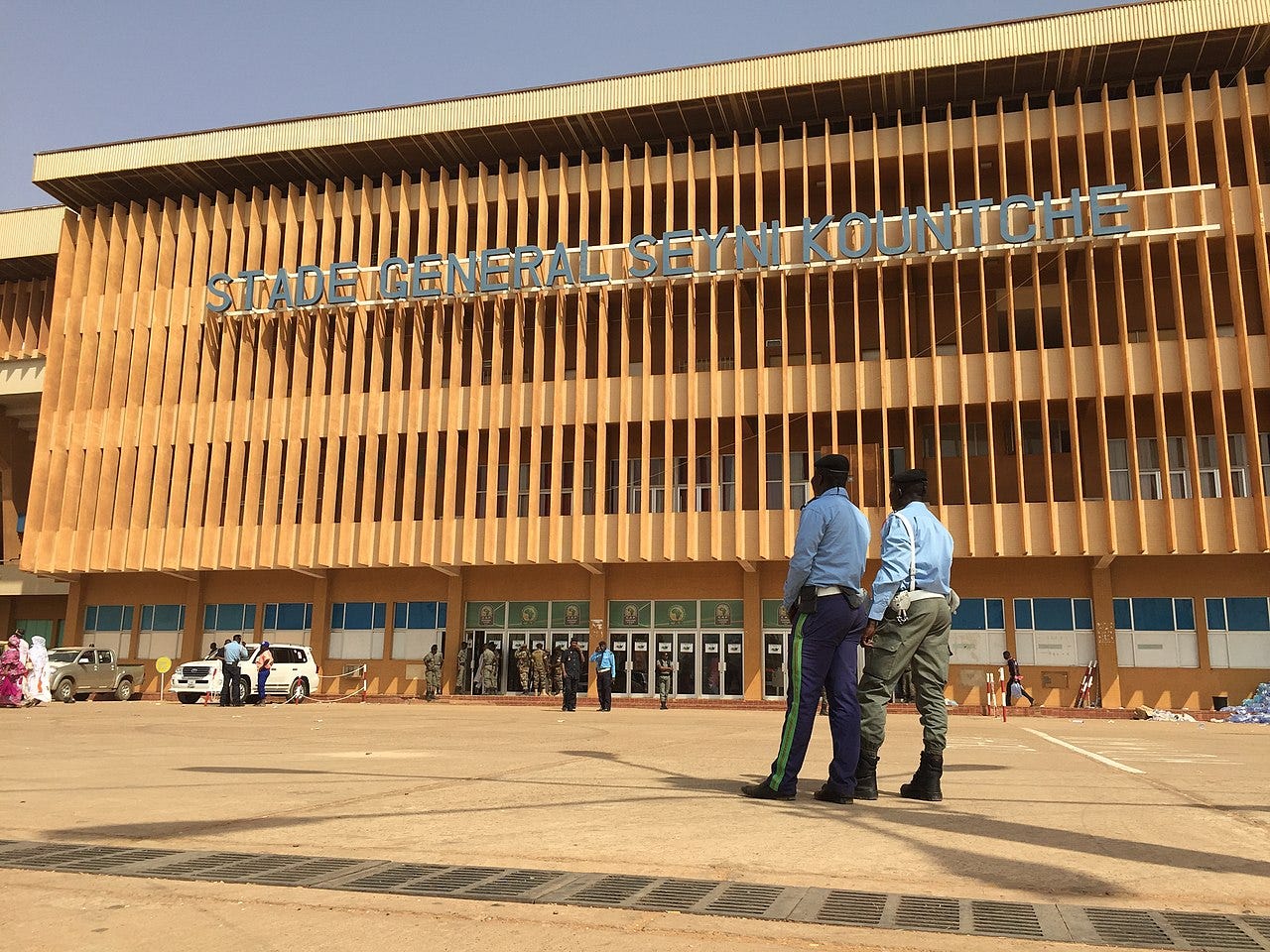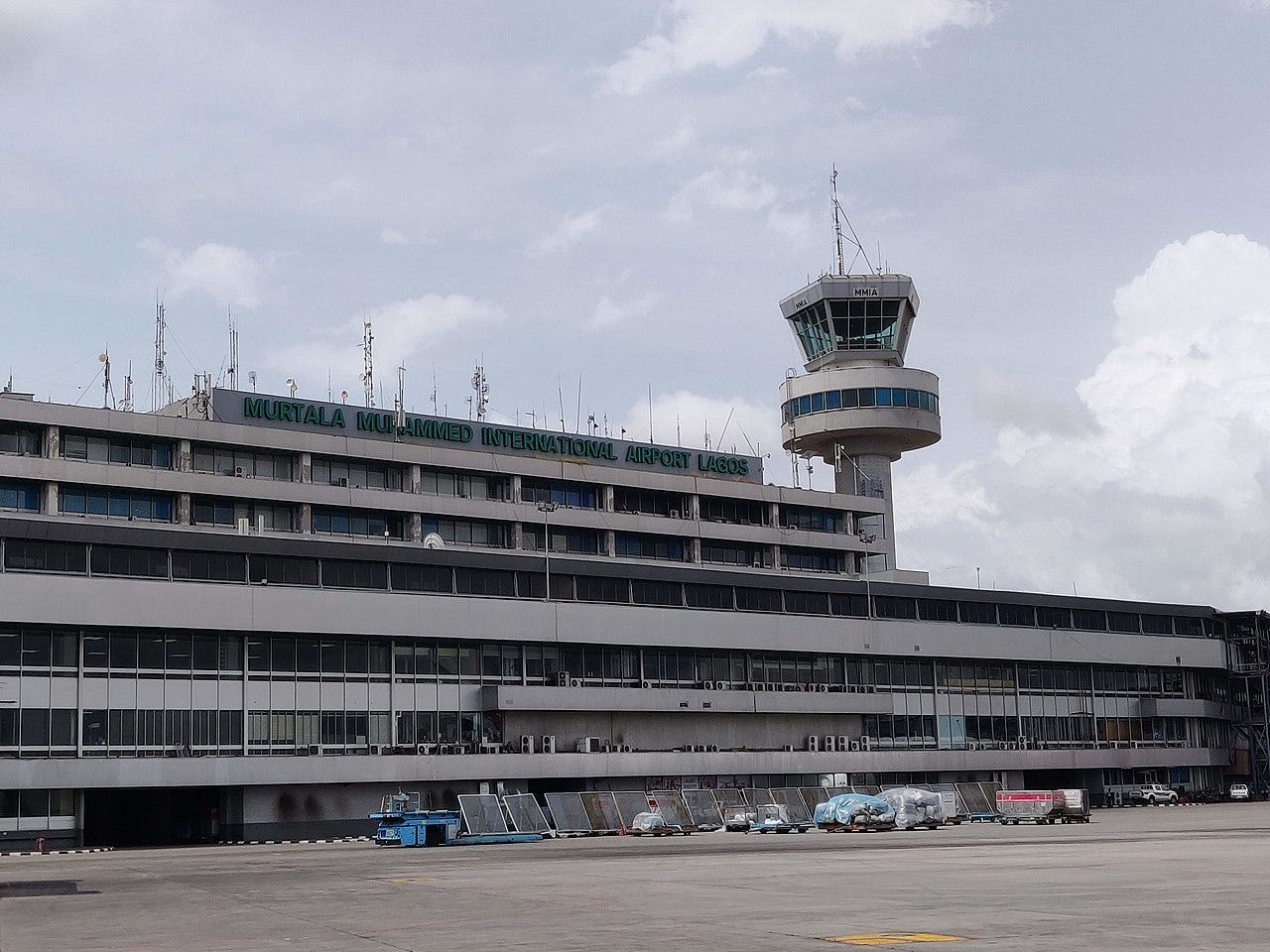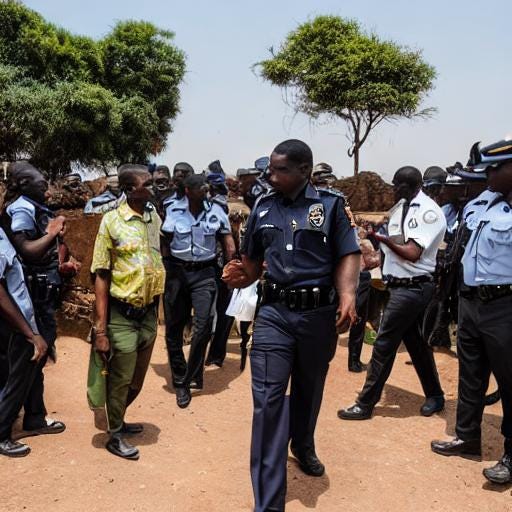Sudan's military clashes and the history of military coups in Africa
Mapping all the coups and coups attempts in Africa since independence
Did you know that Africa has experienced more than 70 coups or coup attempts since the 1950s? It's a shocking reality that 41 out of 55 African countries have experienced political turmoil due to military intervention.
With the recent military clashes in Sudan, this issue has once again been brought to the forefront. To better understand this complex and troubling trend, we mapped of all the coups and coup attempts in Africa.
Algeria
July 3, 1962: Ahmed Ben Bella and Colonel Houari Boumediene ousted Ben Youssef Ben Khedda. Ben Youssef stepped down to avoid bloodshed.
June 19, 1965: Colonel Houari Boumediene overthrew Ahmed Ben Bella. Many suspected the CIA had a hand in this. Houari served until 1978, when he died of a rare blood disease.
Some people suspect Houari was assassinated, especially because two individuals who participated in the 1975 Algiers Agreement with Houari also died of the same rare blood disease. What are the odds?
January 11, 1992: General Khaled Nezzar and his fellow senior generals overthrew President Chadli Bendjedid.
This coup kick-started the Algerian civil war which lasted from 1992 to 2002. General Nezzar is currently facing trial in Switzerland for war crimes.
Angola
1977: Nito Alves, the Minister of Interior failed to overthrow Agostinho Neto.
Benin
October 28, 1963: Colonel Christophe Soglo overthrew Hubert Maga. He reorganized the government and gave up power in 1964 in favor of a civilian—Sourou-Migan Apithy.
November 27, 1965: Colonel Christophe Soglo angry at the ongoing feuds between Apithy and other political leaders over policies, overthrew Sourou-Migan Apithy.
December 16, 1967: Maurice Kouandete, a military officer, overthrew Colonel Christophe Soglo. Two days later, he handed Alphonse Alley power. In 1968, Kouandete forced Alphonse Alley to retire in favor of Emile Derlin Zinsou (his new favorite).😂
December 10, 1969: Maurice Kouandete overthrew Emile Derlin Zinsou. Kouandete had discovered that Zinsou planned to replace him as Chief of Staff and cut the size of the military.
October 26, 1972: Mathieu Kerekou, a major in the army, overthrew Justin Ahomadegbe-Tometin. Kerekou was Kouandete’s cousin and he ruled Benin for 19 years.
January 17, 1977: Mercenaries led by the French tried to overthrow Mathieu Kerekou. They failed.
March 4, 2013: Colonel Pamphile Zomahoun led a failed coup against President Thomas Boni Yayi. President Boni allegedly survived two assassination attempts.
Burkina Faso
January 3, 1966: Lieutenant Colonel Sangoule Lamizana overthrew President Maurice Yameogo.
February 8, 1974: The Upper Voltan coup d’etat saw Lieutenant Colonel Sangoule Lamizana orchestrate a self-coup against Prime Minister Gerard Kango Ouedraogo.
November 25, 1980: Colonel Saye Zerbo overthrew President Sangoule Lamizana. Prior to the coup, Colonel Zerbo had served as the minister of foreign affairs in President Lamizana’s government.
November 7, 1982: Major Jean-Baptiste Ouedraogo overthrew Saye Zerbo.
February 28, 1983: President Jean-Baptiste Ouedraogo survived a failed coup.
August 4, 1983: Captain Blaise Compaore overthrew President Jean-Baptiste Ouedraogo and replaced him with Thomas Sankara. He and Sankara were close associates.
October 15, 1987: Captain Blaise Compaore overthrew Thomas Sankara over differences on how to lead. In the process, Sankara, the great Pan-African icon was killed.
September 18, 1989: Senior officers attempted to overthrow Compaore. The coup failed.
October 2003: A failed coup d’etat. Compaore imprisoned several military and political dissidents after that. He went on to rule Burkina Faso for 11 more years after winning elections in 2005 and 2010 under dubious circumstances.
He was nicknamed “Handsome Blaise.”
October 30 2014: Lieutenant Colonel Yacouba Isaac Zida overthrew Blaise Compaore. He briefly served as president before appointing a civilian president—Michael Kafando.
September 17, 2015: Gilbert Diendere, a military officer, in collaboration with the presidential guard, overthrew Michael Kafando. The coup soon collapsed and Kafando was reinstated as a transitional president.
In November 2015, Burkina Faso held elections and Roch Marc Christian Kabore was elected as president.
October 8, 2016: Former presidential guards loyal to Blaise Compaore attempted to overthrow President Roch Marc Christian Kabore. They failed.
January 23, 2022: A successful coup d’etat led by military officer Paul-Henri Sandaogo Damiba. Damiba became interim president after the coup and promised to improve security.
He failed to defeat Jihadists and by September 2022, 40% of Burkina Faso was controlled by Jihadists, rebels and non-state actors.
September 30, 2022: Paul-Henri Sandaogo Damiba was deposed in a coup led by his compatriot, Ibrahim Traore. Ibrahim ordered French forces to withdraw from Burkina Faso in January 2023.
P.S. Recently, Blaise Compaore apologized for his role in Sakara’s death.
I ask the Burkinabe people for forgiveness for all the acts I may have committed during my tenure, and especially the family of my brother and friend Thomas Sankara.
I take responsibility for, and regret from the bottom of my heart, all the suffering and tragedies experienced by all victims during my terms as leader of the country and ask their families to grant me their forgiveness—
Blaise Compaore apologizing after a Burkina Faso court gave him a life sentence for his role in Thomas Sankara’s assassination.
Burundi
July 8 1966: Ntare V overthrew Mwabutsa IV. Fun fact, Ntare V was Mwabutsa IV’s son. Ntare V deposed his own father.
November 28, 1966: Michel Micombero, a Colonel, overthrew Ntare V. Ntare V went to exile in West Germany, then returned to Burundi in 1972. Soon after his return, he was assassinated.
1972: A Hutu uprising, protesting Micombero’s leadership which was increasingly handing Tutsis power at the expense of Hutus killed approximately 1200 Tutsis.
In retaliation, Micombero led an ethnic cleansing/genocide that killed between 100,000 and 300,000 Hutus. The mass killings are referred to as Ikiza in Burundi. It means ‘Catastrophe’ or ‘Great Calamity.’
November 10, 1976: Jean-Baptiste Bagaza, an army officer overthrew Michel Micombero. Micombero fled to Somalia and died in 1983 of a heart attack at age 43 (Karma? Justice?).
September 3, 1987: Pierre Buyoya, an army officer, overthrew Jean-Baptiste Bagaza. He served as president from 1987-1993 and introduced multi-party system. In 1993, Buyoya was defeated by Melchior Ndadaye, a Hutu, in the general elections.
October 1993: After serving for three months as president, Melchior Ndadaye was assassinated in a failed military coup. His death sparked tensions between the Hutu and Tutsis and led to a 10-year long Burundi civil war that killed 300,000 Burundians.
July 25, 1996: Pierre Buyoya overthrew Sylvestre Ntibantuganya. He created an inclusive government and participated in Arusha accords which created power sharing between Hutus and Tutsis.
Buyoya died of Covid-19 in 2020, just 2 months after being sentenced to life in prison for his suspected role in Melchior Ndadaye’s assassination.
May 13-15, 2015: General Godefroid Niyombare led a failed coup against President Pierre Nkrunziza.
Cameroon
April 6, 1984: Presidential guards attempted to overthrow President Paul Biya. They failed. President Biya is currently the oldest head of state in the world. He has ruled Cameroon for 41 years.
Central African Republic
January 1, 1966: Jean-Bedel Bokassa, a military leader, overthrew David Dacko, the first president of Central African Republic.
1974: General Martin Lingoupou failed to overthrow Bokassa.
1975: A failed coup against Bokassa.
1976: Groups of soldiers failed to overthrow Bokassa.
September 21, 1979: David Dacko, with help from French Military, overthrew Jean-Bedel Bokassa. In 1987, Bokassa was cleared of cannibalism charges but charged with murder of school children and other crimes.
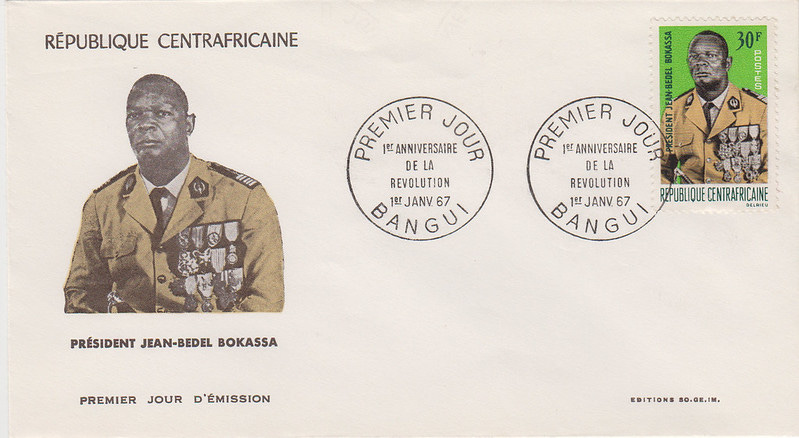
September 1, 1981: General Andre Kolingba overthrew David Dacko. Dacko died of heart disease in 2003.
1982: Ange-Felix Patasse, Brigadier General Francois Bozize and Alphonse Mbaikoua tried to overthrow Andre Kolingba. They failed and Kolingba served as president until 1993.
1996: Soldiers tried to overthrow Patasse. Ange-Felix Patasse was elected in 1993 as president in CAR’s first democratic election.
May 27-28, 2001: Commandos of CAR armed forces attempted to overthrow Ange-Felix Patasse, but the coup failed. Approximately 400 people died in the ensuing violence.
October 2002: Brigadier General Francois Bozize tried to overthrow Ange-Felix Patasse, his former comrade in arms.
March 15, 2003: Brigadier General Francois Bozize succeeded in ousting Ange-Felix Patasse. He went on to rule CAR for 10 years (2003-2013).
March 24, 2013: Michel Djotodia of the Seleka coalition overthrew Francois Bozize. This ousting triggered fighting between Seleka and militias oppossed to them—the Anti balaka. Seleka fighters are largely muslims while Anti-balaka militias are christian.
26 September to 3 October 2015: Haroun Gaye, a warlord, and Eugene Ngaikosset, a militia leader, led a coup in an attempt to overthrow Catherine-Samba Panza.
Eugene Ngaikosset killed over 51 civilians during his time as a Lieutenant in the presidential guard. The killings earned him a nickname as “butcher of Paoua.”

December 2020-January 2021: Former president, Francois Bozize led a failed coup against President Faustin-Archange Touadera. Reports allege that Russia’s Wagner Group is responsible for President Faustin-Archange Touadera personal security.
Chad
April 13, 1975: General Noel Milarew Odingar overthrew Francois Tombalbaye. Francois died from wounds sustained during the coup.
June 17, 1982: Hissene Habre, a rebel commander, overthrew Goukouni Oueddei. Habre ruled for 8 years, from 1982 to 1990. In 2016, Habre was convicted of sexual slavery, rape, torture and murder of more than 40,000 civilians while he was president. He was sentenced to life in prison.
December 1, 1990: Idriss Deby overthrew Hissene Habre.
May 16, 2004: Attempted coup against Idriss Deby. It failed.
March 14, 2006: Attempted coup against Idriss Deby. It failed.
May 1, 2013: Attempted coup against Idriss Deby. It failed. Deby ruled Chad until his death in 2021. He died in battle, fighting rebels from Front for Change and Concord in Chad (FACT).
April 20, 2021: Mahamat Deby, Idriss’ son, seized power in a military coup after his father’s death. He is the current president of Chad.
Democratic Republic of Congo
September 14, 1960: Joseph-Desire Mobutu, in arguably DRC’s and Africa’s greatest tragedy, overthrew Patrice Lumumba.

November 25, 1965: Joseph-Desire Mobutu overthrew Joseph Kasa-Vubu. Mobutu ruled Congo until 1997 when he was ousted. He died from prostrate cancer a few months later.
Fun fact, he changed his name from Joseph-Desire Mobutu to Mobutu Sese Seko Nkuku Ngbendu Wa Za Banga which means, the all powerful warrior, who because of his endurance and inflexible will to win, goes from conquest to conquest leaving fire in his wake 🤦🏽♀️
May 16, 1997: Laurent-Desire Kabila in collaboration with Ugandan and Rwandese forces overthrew Mobutu Sese Seko. This campaign to unseat Mobutu sparked the First Congo war between 1996 and 1997.
In 1998, Kabila’s unstable government created an enabling environment for the Second Congo war (1998-2003).
Republic of Congo
August 15, 1963: Alphonse Massamba Debat overthrew Fulbert Youlou. He ruled for 5 years (1963-1968).
September 4, 1968: Lieutenant Marien Ngouabi overthrew Alphonse Massamba Debat and served as the fourth president of Republic of Congo until March 1977 when he was assassinated.
Alphonse Massamba Debat was executed in 1977 for plotting the assassination.
February 8, 1979: Denis Sassou Nguesso, a military officer, overthrew Joachim Yhombi-Opango. Nguesso served as head of state from 1979-1992. He participated in the 1993 elections but placed third.
October 25, 1997: Denis Sassou Nguesso overthrew Pascal Lissouba during the Second Civil war. He has been the president since.
In 2006, during a UN General Assembly, President Denis Sassou Nguesso and his entourage occupied 44 rooms at a hotel for a total cost of 130,000 pounds. It was more than the 106,000 pounds that Britain gave to Republic of Congo as aid.
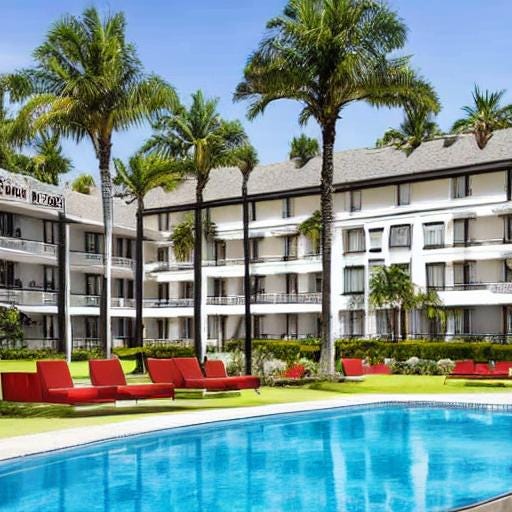
Egypt
Egypt gained its independence from Britain on 22nd February 1922. However, Egypt became a republic in 1953.
1952: The Free Officers Movement in collaboration with Muhammad Naguib overthrew Farouk of Egypt. This coup ended the Kingdom of Egypt.
February 27, 1954: Gamal Abdel Nasser overthrew Muhammad Naguib.
December 1957: Prince Muhammad Abdel Moneim, desperate to restore the monarchy, attempted to overthrow Gamal Abdel Nasser. He failed and Nasser ruled Egypt until his death in 1970.
Nasser died of a heart attack aged 52. During his funeral, Muammar Gaddafi of Libya fainted twice because of emotional distress.
2011: Young people led a revolution to protest increasing police brutality, lack of civil liberties and political freedom, unemployment, low wages and the high cost of food.
At least 846 protestors died but the protests continued until Hosni Mubarak, who had been in power since 1981, resigned.
2013: General Abdel Fattah El Sisi overthrew Mohamed Morsi. General Abdel has been Egypt’s president since.
Equatorial Guinea
August 3, 1979: Teodoro Obiang Nguema Mbasogo, a military officer, overthrew his uncle—Francisco Macias Nguema.
Francisco was a horrible dictator and during his reign as the first president of Equatorial Guinea, he killed between 50,000 and 80,000 people in a country that had only 400,000 people at the time.
March 7, 2004: A coup attempt against Teodoro Obiang Nguema Mbasogo failed even before the plotters arrived in the country. Teodoro Obiang Nguema has served as president since 1979. He is the longest serving president in the world ever.
Ethiopia
Ethiopia was never colonized, as such, the coups started a little earlier.
1910: Fitawrari Habte Giyorgis in collaboration with Ras Tessema Nadew forced out Empress Taytu, the regent of the ailing Emperor Menelik II of Ethiopia. Empress Taytu is responsible for giving Addis Ababa its name.

1916: Aristocrats that included Ras Tafari Makonnen and Fitawrawi Habte Giyorgis ousted Iyasu V.
December 13, 1960: Four conspirators, led by Brigadier General Mengistu Neway failed to overthrow Haile Selassie I during a state visit.
September 12, 1974: Aman Mikel Andom overthrew Haile Selassie and established a council or Derg in Amharic. Officially, it was known as Provisional Military Administrative Council (PMAC). Haile Selassie was assassinated in 1975 by former military officers by order of the Derg.
November 17, 1974: Tafari Benti overthrew Aman Mikel Andom. Aman Mikel died in a shootout with his former co-conspirators during the coup.
February 3, 1977: Mengistu Haile Mariam overthrew Tafari Benti. Mengistu killed all his rivals in the Derg as well as civilians opposed to his rule in a bid to consolidate power.
That dark period is known as the Ethiopian Red Terror and estimates suggest that the death toll was between 30,000 and 750,000.
June 22, 2019: An attempted coup d’etat against the Amhara regional government that resulted in the death of Amhara regional president, Ambachew Mekonnen and the Chief of General Staff of Ethiopian National Defense Force, General Se’are Mekonnen.
Gabon
February 17-18, 1964: A section of Gabonese military officers overthrew President Leon Mba. Jean-Hilaire Aubame installed himself as president soon after the coup, but the French intervened and within a few days, President Leon Mba was back in power.
Mba ruled until 1967 when he died of cancer soon after being reelected as president. Albert-Bernard Bongo, the vice president, took over.
January 7, 2019: Gabonese soldiers tried to overthrow Ali Bongo Ondimba. They seized the national radio and shut down the internet. However, within a few hours, Gabon’s government announced it had taken back control.
The Gambia
July 22, 1994: Yahya Jammeh, a military officer overthrew Dawda Jawara. Yahya went on to rule the Gambia until 2017 when he lost the election to Adama Barrow. Yahya has recently been accused of looting millions of public funds and raping young women.
December 30, 2014: Lamin Sanneh, the former head of presidential guards led a failed coup against Yahya Jammeh.
December 20, 2022: Several soldiers tried to launch a coup d’etat against President Adama Barrow. Eight soldiers were charged in connection with the attempt.
Ghana
February 24, 1966: Joseph Arthur Ankrah, an army general, in collaboration with General Kotoka and General Akwasi Afrifa, overthrew one of the fathers of Pan-Africanism, Kwameh Nkrumah.
In his book, Dark Days in Ghana, Nkrumah said the coup was orchestrated by CIA and the United States.
April 17, 1967: Junior officers in Ghana’s army attempted a coup. It failed but led to the death of General Emmanuel Kwasi Kotoka.
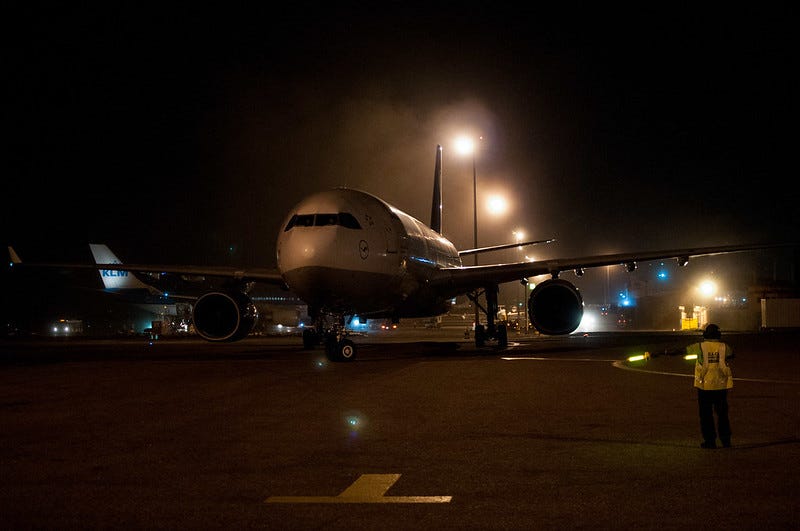
January 13, 1972: General Ignatius Kutu Acheampong overthrew Kofi Abrefa Busia. Acheampong served as president for 6 years, and in 1979 was court-martialed and executed by a firing squad.
July 5, 1978: Lieutenant General Fred Akuffo overthrew Ignatius Kutu Acheampong. Akuffo was overthrown within a year and executed by firing squad just like Acheampong.
June 4, 1979: Junior officers led by flight lieutenant Jerry John Rawlings overthrew Fred Akuffo. Rawlings handed over power to a civilian government under president Hilla Limann.
December 31, 1981: Jerry John Rawlings overthrew Hilla Limann two years after handing him power. He claimed Limann’s government was weak and was unable to rectify Ghana’s deteriorating economy.
President Rawlings served as president until 2001. He died in 2020, aged 73.

Guinea
April 3, 1984: Lansana Conte, a military official overthrew Louis Lansana Beavogui. He served as president until his death in 2008.
December 24, 2008: In what is often termed as a Christmas coup, Mousa Dadis Camara, a military officer, overthrew Aboubacar Sompare.
6 hours before the coup, Mousa Dadis Camara, who was the head of the army stood next to Aboubacar Sompare in a televised address and declared 40 days of mourning, to honor Lansana Conte.
September 5, 2021: Colonel Mamady Doumbouya overthrew Alpha Conde. Mamady is currently serving as interim president.
During the coup, Mamady Doumbouya quoted Jerry Rawlings who said that “if the people are crushed by their elites, it is up to the army to give people their freedom.”
Guinea-Bissau
November 14, 1980: Joao Bernardo Vieira overthrew Luis Cabral. He served as president from 1980 to 1999 when his dismissal of Ansumane Mane, the military chief of staff triggered a civil war.
Joao went to exile in Portugal but returned in 2005, ran for president and won.
He was assassinated in 2009, in retaliation for the death of General Batista Tagme Na Waie. Reports say he was beaten, shot and hacked to death.
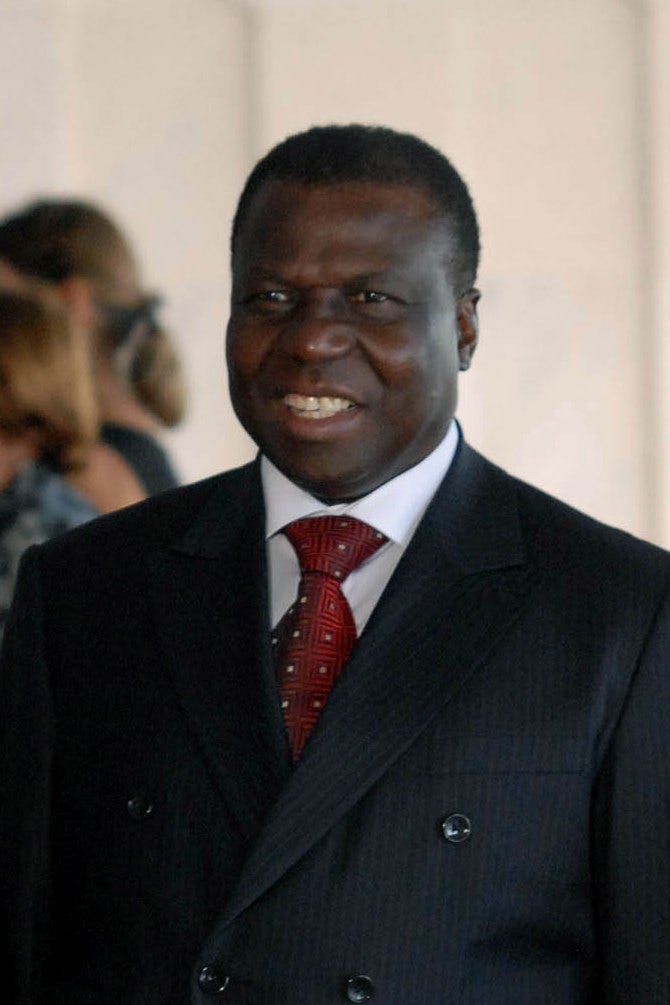
May 7, 1999: Ansumane Mane overthrew Joao Bernardo Vieira.
September 14, 2003: General Verissimio Correia Seabra overthrew Kumba Lala after the government failed to pay soldiers for several weeks. General Seabra handed power to the caretaker government of Henrique Rosa.
April 12, 2012: The army overthrew the government.
February 1, 2022: A failed coup against President Umaro Sissoco Embalo.
Media and respected think tanks have labelled Guinea-Bissau as a Narcostate. This is a country where illegal drug trade has penetrated all legitimate institutions.
Ivory Coast
December 24, 1999: Tuo Fozie, an Ivorian military officer in collaboration with a group of soldiers, overthrew Henri Konan Bedie.
The soldiers coaxed retired army commander, Robert Guei, who wasn’t involved in the coup to serve as interim president and organize elections.
Guei participated in the 2000 elections but lost to Laurent Gbagbo. Guei refused to accept the result and that dispute, together with other grievances kick-started the Ivorian civil war that lasted until 2007.
Kenya
1st August 1982: Kenya Airforce personnel attempted to overthrow President Daniel Arap Moi. They captured parts of Nairobi before the coup collapsed. Kenya Airforce was disbanded and the 12 participants were charged and hanged.
President Moi alleged that North Korea, Soviet Union, Cuba and East Germany financed the attempted coup.
Lesotho
1970: Prime Minister Leabua Jonathan led a self-coup that saw him assume dictatorial powers. He orchestrated the coup because the opposition won the 1970 general elections.
After grabbing power, he annuled the elections without announcing results and dissolved the government.
January 18, 1986: General Justin Metsing Lekhanya overthrew Prime Minister Leabua Jonathan.
November 12, 1990: General Justin Metsing Lekhanya overthrew King Moshoeshoe II of Lesotho. During the first years of his reign, General Justin gave the king more powers. Later, he got into a dispute with him and that’s why he deposed him.
May 2, 1991: Major-General Elias Phisoana Ramaema overthrew Justin Metsing Lekhanya. He guided Lesotho back to civilian rule and in 1993, oversaw elections that resulted in Ntsu Mokhehle democratically elected government.
1994: King Letsie III ousted Ntsu Mokhehle because he refused to reinstate King Moshoeshoe II.
Pressure from Southern African countries forced King Letsie to step down and Ntsu Mokhehle retook his position as Prime Minister of Lesotho.

Liberia
October 26, 1871: The people of Monrovia ousted President Edward James Roye.
April 12, 1980: Master Sergeant Samuel K. Doe overthrew President William R. Tolbert Jr. Doe was the first non-Americo-Liberian head of state.
Non-Americo-Liberians are Liberians of Afro-Caribbean, African-American and liberated African descent.
September 9, 1990: Prince Johnson overthrew President Samuel K. Doe. Doe’s government was corrupt, totalitarian and showed favoritism.
It led to anti-Doe protests that kick-started the First Liberian Civil War that killed more than 200,000 people.
Libya
September 1, 1969: Muammar al-Gaddafi overthrew King Idris of Libya and established a republic. Gaddafi served as Libya’s leader until 2011, when massive protests arose.
By February 2011, rebels controlled Benghazi, Al-Bayda, Misrata and other eastern cities. They formed the National Transition Council to represent their interests. By August 2011, NTC had captured Tripoli and Gaddafi fled to Sirte, his home town.
On October 20, 2011, Gaddafi was captured by Misrata militia and in the process, was beaten and shot to death. He was buried at an unidentified location in the desert.
October 10, 2013: A group that self-identified as revolutionaries led a coup attempt against Prime Minister Ali Zeidan, but it failed.
February 2014: Major General Khalifa Haftar led a third coup against Prime Minister Ali Zeidan. Although Ali Zeidan survived all three coups, the parliament committee ousted him in 2014. He fled after the ousting.
October 14, 2016: Ex Prime Minister Khalifa al-Ghawil led a failed coup agianst Prime Minister Fayez al Sarraj
Madagascar
October 11, 1972: President Philibert Tsiranana resigned and Major General Gabriel Ramanantsoa became head of state.
Philibert Tsiranana was reelected in January 1972, but the May 1972 revolution comprising of labor and political protests forced him to hand over power to Major General Gabriel Ramanantsoa.
February 5, 1975: Richard Ratsimandrave overthrew Major General Gabriel Ramanantsoa, in a “legal coup.” Legal because Major General Gabriel Ramanantsoa was forced to hand over power to Richard after social and political unrest.
Richard Ratsimandrave assumed power as both president and prime minister. Unfortunately, he was assassinated six days later.
Didier Ratsiraka then became the caretaker president and in December 1975, was approved as the new president of the Republic of Madagascar.
March 17, 2009: Andry Rajoelina, with the help of the army overthrew Marc Ravalomanana. The coup created an economic crisis as a result of aid drying up and investers fleeing.
Mali
November 19, 1968: Lieutenant Mousa Traore, a soldier, overthrew Modibo Keita. He then served as president until 1991.
Mousa was charged with political and economic crimes and sentenced to life in prison. However, his sentence was commuted to facilitate national reconciliation.
March 26, 1991: Amadou Toumani Toure overthrew Mousa Traore. He oversaw the transition to civilian rule and in 1992, handed over power to Mali’s first democratically elected head of state—Alpha Oumar Konare.
March 12, 2012: Disgruntled soldiers in the military overthrew Amadou Toumani Toure. He went into exile in Senegal but returned to Mali in December 2017.
August 18, 2020: The military overthrew Ibrahim Boubacar Keita. He resigned immediately after the coup, saying he did not want blood to be spilled to stay in power. He died on January 2022.
May 24, 2021: The military overthrew Bah N’daw in a coup d’etat led by Assimi Goita.
2022: The Military Junta in charge of Mali alleged to have stopped a coup attempt by a NATO country.
Mauritania
July 10, 1978: Army Commander Mustafa Ould Salek overthrew Moktar Ould Daddah. Moktar Daddah had served as Mauritania’s first president after independence but war in Western Sahara affected his popularity.
April 6, 1979: Mohamed Khouna Ould Haidalla in collaboration with Ahmad Ould Bouceif overthrew Mustafa Ould Salek. General Mustafa Salek was unable to calm racial tensions between Arab moors amd Mauritaian Blacks, which led to his ousting.
January 4, 1980: Colonel Mohamed Khouna Ould Haidalla overthrew Mohamed Mahmoud Ould Louly.
Louly took over the presidency after Ahmad Ould Bouceif, Colonel Haidalla’s coup partner died in a plane crash.
December 12, 1984: Maaouya Ould Sid’Ahmed Taya overthrew Mohamed Khouna Ould Haidalla.
Maaouya went on to serve as president for 21 years unti, 2005.
August 3, 2005: Ely Ould Mohamed Vall overthrew Maaouya Ould Sid’Ahmed Taya.
Vall was a previous ally of Maaouya, but when he realized Maayouya was becoming totalitarian, he overthrew him and transitioned the country into civilian democratic rule.
August 6, 2008: Mohamed Ould Abdel Aziz overthrew Sidi Ould Cheikh Abdallahi. He served as the 8th president of Mauritania and stepped down in 2019 after the end of his two terms.
Morocco
July 10, 1971: Mohamed Medbouh and M’hamed Ababou led a failed coup against Hassan II of Morocco.
August 16, 1972: Mohamed Oufkir led a failed coup against Hassan II of Morocco. Hassan II reigned as king until his death in 1999.
He was succeeded by Mohamed VI, his son. Fun fact, Morocco is the last remaining monarch in North Africa.

Niger
April 15, 1975: Seyni Kountche, a military officer overthrew Hamani Diori. Kountche ruled as military head of state until his death in 1987.
January 27, 1996: Ibrahim Bare Mainassara, a military officer ousted Mahamane Ousmane. Ibrahim only ruled for 3 years. In 1999, he was assassinated.
April 9, 1999: Daouda Malam Wanke, a military leader overthrew Ibrahim Bare Mainassara. Wanke promised to hold elections and in December 1999, and handed power to the newly elected president—Mamadou Tanda.
February 18, 2010: Lieutenant General Salou Djibo ousted Mamadou Tanda. President Mamadou’s attempt to hold on to power after his term was over precipitated the coup.
Lieutenant Djibo handed over power to a civilian government after the 2011 elections.
31 March 2021: Captain Sani Saley Gourouza attempted to overthrow Mahamadou Issoufou, but failed.
Nigeria
January 15-16, 1966: Chukwuma Kaduna Nzeogwu, a military officer, ousted Abubakar Tafawa Balewa. It was a bloody affair that saw Nzeogwu execute army personnel as well as fleeing women and children.
However, the coup lasted for only a short period because Nzeogwu was arrested on 18th January 1966.
1966 Nigerian counter-coup: This was a retaliatory coup in response to the January coup that killed a lot of nothern leaders. Lt. Colonel Murtala Muhammed in collaboration with nothern leaders masterminded the coup.
The coup organizers appointed Yakubu Gowon as president after killing the then head of state—Johnson Aguiyi-Ironsi. Yakubu was head of state during the Biafran civil war and delivered the famous “No victor, no vanquished” speech”
July 29, 1975: Colonel Joe Nanven overthrew Yakubu Gowon and installed Lt. Colonel Murtala Muhammed as president and Brigadier Olesegun Obasanjo as his deputy.
The coup was as a result of multiple scandals in Gowon’s government—especially the cement armada scandal.
February 13, 1976: Buka Suka Dimka, an army officer attempted a coup that led to the death of Lt. Colonel Murtala Muhammed, the then head of state.
The coup was crashed and Dimka together with 38 co-conspiritors were arrested and executed by a firing squad.
December 31, 1983: Major General Muhammadu Buhari ovethrew Shehu Shagari. He served as the military head of state until 1985.
In 2015, Buhari ran for president under All Progressives Congress party. He won and served as president until 2023.
August 27, 1985: Ibrahim Babangida overthrew Muhammadu Buhari. Ibrahim resigned in 1993 after protests and political unrests. He handed over power to Ernest Shonekan.
April 22, 1990: Major Gideon Orkar led a failed coup against Ibrahim Babangida. Orkar and his 41 co-conspiritors were tried and executed.
November 17, 1993: Sani Abacha ousted Ernest Shonekan. Sani ruled as military head of state until his death in 1998. Sani’s coup was Nigeria’s last successful coup. Many believe that Sani was poisoned by Israeli operatives.
Rwanda
July 5, 1973: Juvenal Habyarimana overthrew Gregoire Kayibanda. Habyarimana was nicknamed Kinani, which means “invincible.” His assassination in 1994 sparked the Rwanda genocide.
Sao Tome and Principe
August 15, 1995: Lieutenant Manuel Quintas de Almeida overthrew Miguel Trovada. The ousting only lasted six days.
July 16, 2003: Major Fernando Perreira ousted Fradique de Menezes. As part of an agreement, Fernando Perreira relinquished power 7 days later.
November 24-25, 2022: An attempted coup against the government Patrice Trovoada. The government thwarted the coup.
Seychelles
June 5, 1977: France-Albert Rene overthrew James Mancham. He served as president from 1977 to 2004, when he stepped down in favor of James Alix Michel, his vice-president.
James Alix went on to serve as president until 2016.
November 25, 1981: Mercenaries from South Africa attempted to topple France-Albert Rene and replace him with James Mancham, the former president.
1986: Defence Minister, Ogilvy Berlouis led a series of coups attempts against France-Albert Rene. They all failed, and president Rene forced him to resign as Minister of Defence in 1986.
Sierra Leone
March 21, 1967: David Lansana overthrew Siaka Stevens in Sierra Leone’s first coup. That decision did not sit well with Lansana’s fellow officers.
On 23rd March 1967, Major Charles Blake together with senior military officials relieved Lansana of his command and took control of the government. They formed a council and installed Lt. Colonel Andrew Juxon-Smith as president.
April 19, 1968: Brigadier John Amadu Bangura overthrew Andrew Juxon-Smith. He staged the coup because he was tired of the series of coups and the breakdown of democratic principles.
April 29, 1992: Valentine Strasser, a junior military officer, overthrew Joseph Saidu Momoh. Strasser was only 25 when he seized power and he served as military head of state for four years.
January 16, 1996: Brigadier Julius Maada Bio overthrew Valentine Strasser. Brigadier Julius was one of junior military officers who helped Valentine Strasser overthrow Joseph Saidu in 1992.
However, in 1996, he got into a dispute with Strasser over seeking peace with RUF before multiparty elections. Strasser was not for peace which forced Brigadier Julius to overthrow him.
Brigadier Julius only held power for 3 months before handing over to Ahmad Tejan Kabbah who was democratically elected. He then retired from the military and moved to the US. He made a political comeback in 2011 and is now the current president of Sierra Leone.
May 25, 1997: Johnny Paul Koroma overthrew Ahmad Tejan Kabbah. He cited corruption and over-dependece on foreign powers as reasons for the coup.
Somalia
October 21, 1969: Muhammad Siad Barre overthrew Sheikh Mukhtar Mohamed Hussein. He served as head of state until 1991.
April 9, 1978: Colonel Mohamed Osmon led a failed coup against Siad Barre. Osman together with 17 coconspiritors were executed by a firing squad.
January 26, 1991: The United Somali Congress and Mohammad Farrah Aidid overthrew Muhammad Siad Barre. The ousting sparked the Somali Civil War that is still ongoing. So far, the civil war has killed over 500,000 people.
Sudan
November 16, 1958: Ibrahim Abboud overthrew Abdalla Khalil. In his words, he did it “to end the state of degeneration, chaos, and instability of the contry.”
Abboud ruled Sudan during the initial stages of the First Sudanese Civil War, also known as Anyanya Rebellion, after the South Sudanese rebel army at the center of the war.
After Sudan gained independence in 1956, tensions arose between North Sudan and South Sudan, which was previously governed by Britain as an independent region. South Sudan leaders accused the Khartoum government of discriminating against their religion (christianity) and ethnicity (non-Arab).
Between 1956 and 1964, the war was largely guerilla-based.
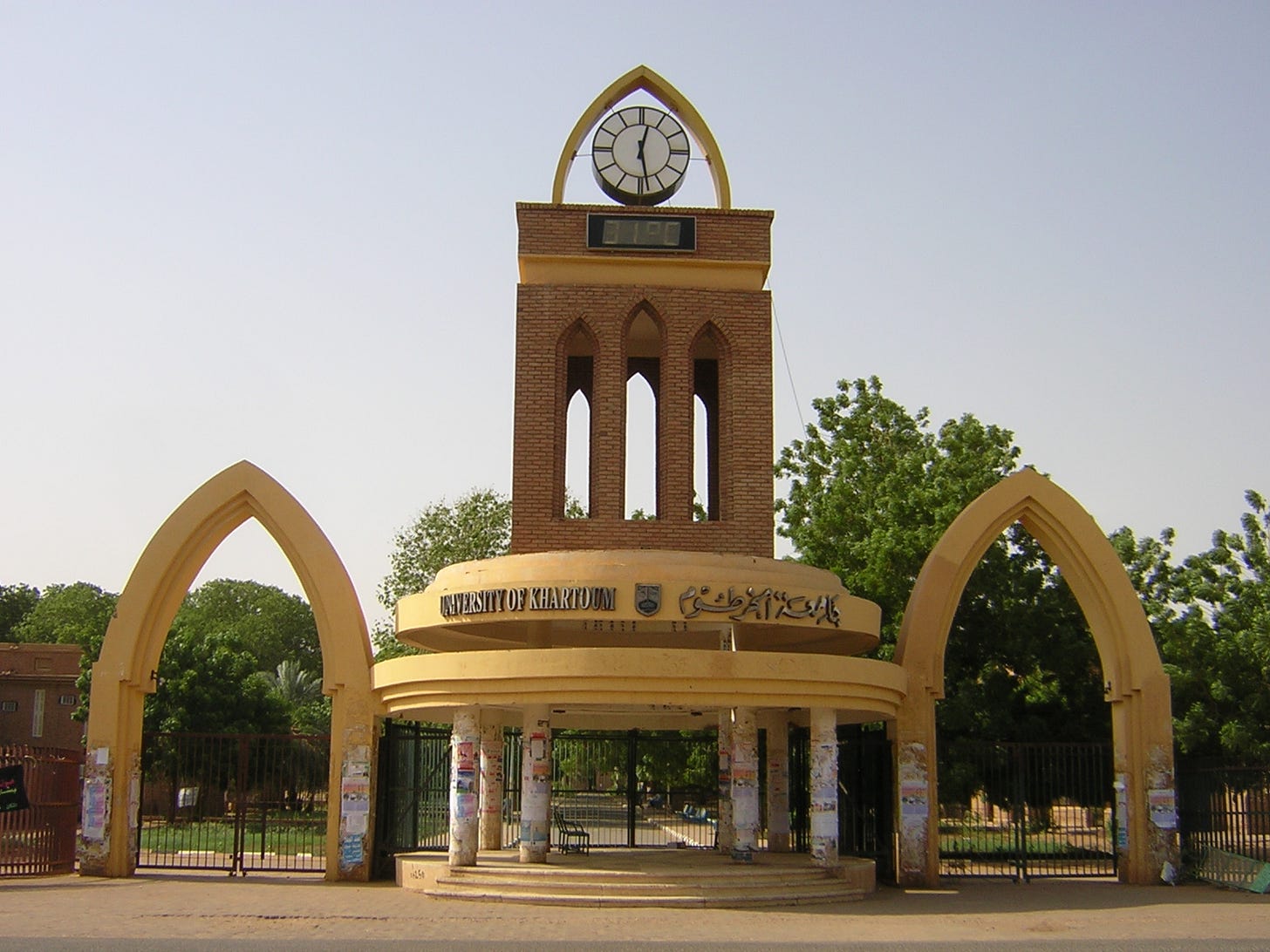
1964: Ibrahim Abboud was forced to resign after demonstrations and strikes spread across the country. The events of 1974 are often reffered to as ‘the October 1964 revolution.’
May 25, 1969: Colonel Gafaar al-Nimeiry overthrew Ismail al-Azhari. Ismail al-Azhari became president in 1965 after Ibrahim Abboud resigned. However, he lacked political power and his position was largely honorary.
July 19-22, 1971: Hashem al Atta, led a splinter group consisting of National Revolutionary Command Council communist members to try and overthrow Gafaar al-Nimeiry. The coup failed because of lack of support.
February 2, 1977: Former members of Anyanya led a failed coup d’etat. The group tried to take over the Juba airport.
April 6, 1985: Abdel Rahman Swar al-Dahab overthrew Colonel Gafaar al-Nimeiry and established the Transitional Military Council (TMC). The TMC sanctioned the 1986 general elections which Sadiq al-Mahdi won.
June 30, 1989: Omar Hassan Ahmad al Bashir, together with the National Islamic Front overthrew Prime Minister Sadiq al-Mahdi and President Ahmed al-Mirghani. Al Bashir ruled Sudan until 2019.
During his tenure, Sudan underwent the Second Sudanese Civil War, which actually began in 1983 before he seized power and ended in 2005, with South Sudan seceding from Sudan.
April 10, 2019: Ahmed Awad Ibn-Auf together with the Sudanese Armed forces overthrew Omar Hassan Ahmad al Bashir after country-wide protests knows as the Sudanese Revolution.
September 21, 2021: Forces loyal to Omar Hassan Ahmad al Bashir, led a failed coup d’eteat against the ruling Sovereignty Council established in 2019.
October 25, 2021: Abdel Fattah Al Burhan with the help of Sudanese military seized the government after the arrest of Prime Minister Abdalla Hamdock and several members of the Sovereignty Council.
Togo
January 13, 1963: Etienne Eyadema & Emmanuel Bodjolle overthrew President Sylvanus Olympio. President Sylvanus died during the coup and Etienne Eyadema established Nicolas Grunitzky as president.
January 13, 1967: Etienne Gnassingbe Eyadema overthrew Nicolas Grunitzky after he fell out with him. Nicolas Grunitzky went into exile in Paris and Etienne Gnassingbe Eyadema made himself president. He also held the post of Defence Minister.

February 2005: Chief of Togolese army, Zakari Nandja, installed Etienne’s son, Faure Gnassingbe as the new president soon after Etienne’s death. The AU, ECOWAS and other international bodies declared the act a coup.
Mounting pressure from the different bodies forced Faure Gnassingbe to step down in favor of interim president, Bonfoh Abass. However, Togo held elections on April 24, 2005 and Faure Gnassingbe won. He has been president since.
Tunisia
July 15, 1957: The Tunisian army replaced King Muhammad VIII al-Amin’s royal guards. The army confined the king to the palace and on 25th of the same month, the Constituent Assembly voted to make Tunisia a Republic.
Habib Bourguiba became the new president, abolishing the monarchy. The king was relieved of his duties and escorted from the palace.
November 7, 1987: Zine El Abidine Ben Ali overthrew Habib Bourguiba. The coup is often referred to as a ‘medical coup d’etat’ because Ben Ali installed himself as president after doctors declared Habib Bourguiba too sick to carry out the presidential duties.
Ben Ali went on to serve as Tunisia’s second president until 2011 when riots and protests over unemployment led to his resignation.
July 25, 2021: Kais Saied, the current president of Tunisia conducted a self-coup that saw him overthrow Tunisia legistlative arm of government—Assembly of the Representatives of the People.
Uganda
February 1966: Milton Obote overthrew King Mutesa II of Buganda. The coup occurred after Obote fell out with Mutesa over a lost referendum and a gold smuggling scandal.
He ruled under a dictatorial regime as president from 1966-1971.
January 25, 1971: Idi Amin overthrew Milton Obote. He initiated the coup when he learned Obote planned to apprehend him for misappropriating army funds. At the time, he was the commander of the Uganda Army.
Amin ruled for only 8 years, but he is regarded as one of the most brutal dictator of modern times.

May 12, 1980: Pauolo Muwanga overthrew Godfrey Binaisa. The National Consultative Commission had appointed Godfrey to serve as president after Tanzanian army and rebel forces ousted Amin from power.
Muwanga ousted Godfrey Binaisa soon after he fired Brigadier Oyite Ojok, the then army Chief of Staff.
July 2, 1985: Tito Okello Lutwa overthrew Milton Obote. Obote had been in power since 1980 after his party, the Uganda People’s Congress, won the elections.
January 26, 1986: Yoweri Museveni overthrew Tito Okello Lutwa. Lutwa served as president for 6 months because Museveni terminated his term forcefully.
Zanzibar
January 12, 1964: John Okello overthrew Sultan Jamshid bin Abdullah Al Said. The coup, now known as the Zanzibar revolution, was caused by under-representation in the government.
The island’s majority black population worked together to the overthrow the mainly Arab government.
Zambia
July 1, 1990: Mwamba Luchembe led a failed coup against President Kenneth Kaunda.
October 28, 1997: Steven Lungu unsuccessfully tried to overthrow President Frederick Chiluba.
Thank you for reading Not an Afterthought Newsletter. We lead the conversation on how Africans can leverage technology, trade, regional integration and Pan-Africanism to build an Africa that is no longer considered an afterthought.
Feel free to join us, it is absolutely free.
Also, kindly share and comment if you found this article helpful.



